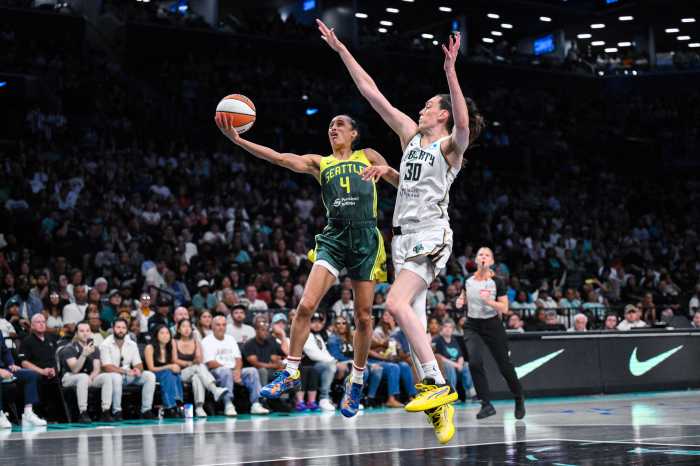Philip Eure, New York City’s first New York Police Department Inspector General, has a tough job ahead of him — to make sure that the New York City Police Department is using best practices to keep us safe from a myriad of threats without compromising our civil liberties. I intend to work closely with my fellow members of the City Council to monitor his work and ensure that he is helping the police department accomplish both of these objectives.
As the new IG, Mr. Eure will provide oversight of some of the City’s most controversial policing practices, in order to build mutual respect between citizens and the police. The City Council voted to establish the Inspector General’s role last year, shortly after it became clear that the breadth of the City’s stop-and-frisk and Muslim surveillance programs were both divisive and, in the case of stop-and-frisk, unlawful. Appointed by the Department of Investigations Commissioner Mark Peters, Eure’s role is to act as an independent monitor to the NYPD, reviewing the department’s policies, procedures and practices in broad strokes.
Mr. Eure, who headed the District of Columbia’s Office of Police Complaints, has a balanced record of oversight. During his tenure there, he addressed warrantless searches, convinced the District’s police department to adopt a one-week training program to teach officers best practices for interacting with the mentally ill (a relevant problem to New York’s own growing population of mentally ill offenders), and tightened up on “contempt of cop” cases (frivolous claims brought against police just trying to do their job).
However, New York is a city of unique challenges. New York employs a substantially larger police force than the District of Columbia (35,000 to 4,000, respectively), and serves what is the most diverse and concentrated urban population nationwide. The City has already taken positive steps to mend fences in communities affected by racially charged policing. Use of stop-and-frisk has dramatically receded from past years. Last week, Commissioner Bratton dissolved the police force’s Demographics Unit, which spied on Muslim citizens for no basis other than their religious affiliation. Sufficient oversight will be needed to ensure that information collected from the Unit is appropriately handled with respect to privacy and that the blanket surveillance of Muslims won’t be diffused into other units.
As IG, Mr. Eure’s ability to apply oversight is not confined to any one issue. Other review institutions, such as the Civilian Complaint Review Board, which investigates individual complaints, or the federal monitor, whose primary purpose is to offer oversight in ending stop-and-frisk practices, have a much more narrow scope. Although public debate on the IG role gave most of its consideration to curtailing the use of stop-and-frisk and Muslim surveillance, the law establishing the IG office authorizes it to examine any and all policies the NYPD employs. For example, state law currently requires police to investigate every crash where a serious accident happens, a standard that Mayor de Blasio has promised to meet as a part of his “Vision Zero” initiative. However, advocates for pedestrian and cyclist accident victims argue that the investigations don’t always happen. The IG has the authority to examine NYPD training and protocol to make sure collision units are properly handling such accidents.
It’s up to Mr. Eure to apply his influence creatively and collaboratively, working with Commissioner Bratton and the Police Department to strive for good relationships and the safety of New Yorkers. We on the City Council will be watching closely to ensure the highest quality oversight is administered.
RECOMMENDED STORIES
































